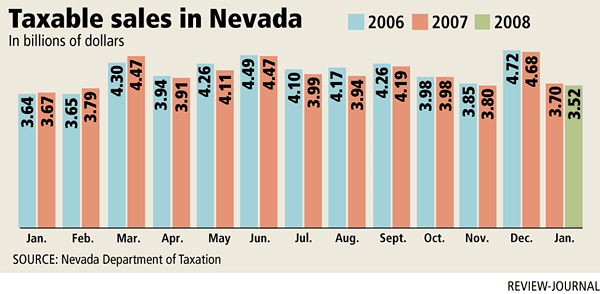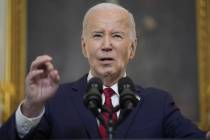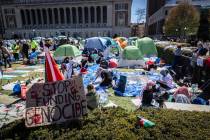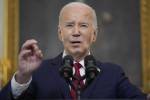Sales plunge, worsening budget woes
CARSON CITY -- Nevada's funding problems worsened Friday when the state Department of Taxation announced that taxable sales for January plunged nearly 5 percent from the year before, the biggest drop of the state's current economic slowdown.
Statewide taxable sales totaled $3.52 billion in January, down from $3.7 billion in January 2007. The 4.9 percent decrease pushed taxable sales for the first seven months of the fiscal year to a 1.8 percent decline over the same period during the previous fiscal year.
Clark County taxable sales were down 4.2 percent in January to $2.67 billion. Washoe County sales were off by 7.2 percent.
Every major component of the taxable sales base was down in January, from auto sales to restaurant purchases.
In a separate report issued Friday on Nevada's February unemployment rate, Bill Anderson, chief economist for the Nevada Department of Employment, Training & Rehabilitation, suggested that an upswing in the economy isn't expected immediately.
"The economic environment in which the Nevada economy operates will remain challenging in the near- term," he said.
Gov. Jim Gibbons is expected to discuss the state's budget and economic problems Monday. One round of 4.5 percent cuts has already been implemented at most state agencies, the university system and the public schools due to lower-than-expected tax revenues.
A new round of cuts, one that could include layoffs, is expected to be announced by Gibbons in the coming weeks.
The projected revenue shortfall for the current two-year budget is now expected to reach $800 million by mid-2009.
Sales tax collections so far this year are now off by more than $60 million from what was projected.
"The January economic numbers show that Nevada's economy is experiencing many of the same challenges that are being seen in many other states," said Gibbons in remarks accompanying the report. "Clearly, the drop in consumer spending is having an adverse effect as well as the nationwide housing problem, which is particularly acute in Nevada."
Senate Minority Leader Dina Titus, D-Las Vegas, said there is no reason to expect the revenue shortfall to ease; if anything it could worsen and even hit $900 million by the end of the two-year budget on June 30, 2009.
"We haven't hit bottom in the housing market," she said.
Titus, who will attend the meeting with Gibbons and others on Monday, said lawmakers are looking at alternatives to across-the-board cuts, including delaying major construction projects and using bond funds to pay for programs.
Job cuts at a time when there is a dire need for parole officer and health inspector positions to be filled doesn't make sense, she said. And there is the flip side to the reduced revenues: an increasing demand for services due to the slow economy, such as a rising Medicaid caseload, Titus said.
The Taxation Department report showed that some taxable sales categories increased in January. Health and personal care stores were up 31.9 percent; amusement, gambling and recreation industries, up 41.8 percent; and rental and leasing services, up 10.9 percent.
But the major categories that bring in most of the sales tax revenue were down. The construction industry was off by 8 percent; merchant wholesalers/durable goods was down by 7.6 percent; motor vehicle and parts dealers were off by 7.4 percent; and general merchandise stores were down by 12.1 percent.
Other declines were seen in clothing and accessory stores, off 1.2 percent; food and beverage stores, down 5.1 percent; home furniture and furnishings, down 9.6 percent; accommodations, off by 12.8 percent; and food services and drinking places, down 0.2 percent.
That bars and restaurants' sales were close to year-ago levels could be considered a positive given the numbers in other categories.
Nevada Restaurant Association President and CEO Paul Hartgen said the flat numbers might reflect increasing sales due to higher restaurant prices, however. The cost of food supplies continues to rise, he said.
But Hartgen said he would rather weather the current economic problems in Las Vegas and Nevada than a lot of other places where jobs are migrating to cheaper locations.
"At least our jobs aren't moving out of the area," he said. "We are a destination and it's hard to lose that."
According to the report, 10 of Nevada's 17 counties recorded a decrease in taxable sales for January 2008 compared to January 2007: Carson City, Clark, Douglas, Elko, Eureka, Lander, Mineral, Nye, Storey and Washoe counties.
Tax collections from sales and use taxes amounted to $264 million for January 2008, which represents a 6.2 percent decrease compared to January 2007.
Compared to the May 1, 2007, Economic Forum projections, the general fund portion of the sales and use taxes is 5.7 percent, or $61 million, below its forecast for fiscal year 2008.
Contact Review-Journal Capital Bureau reporter Sean Whaley at swhaley@reviewjournal.com or (775) 687-3900.




























